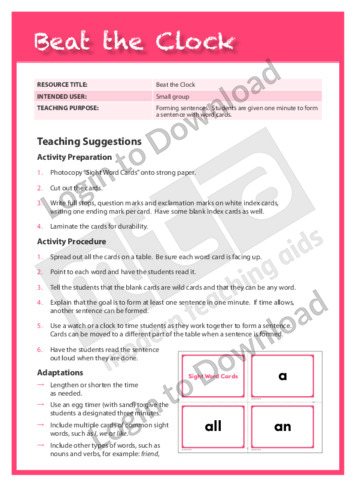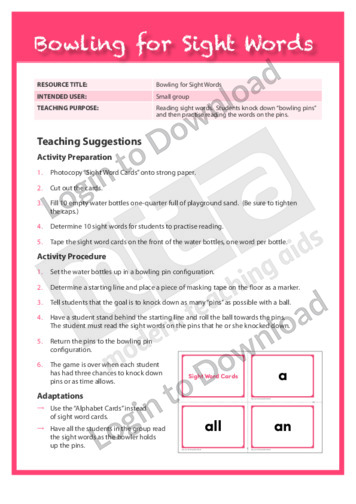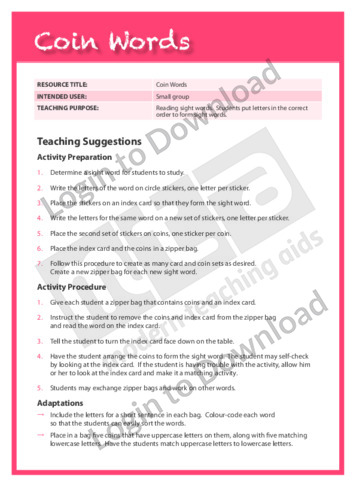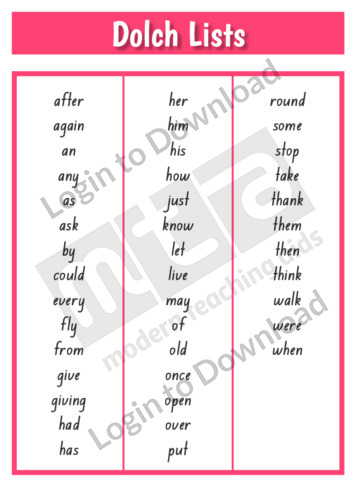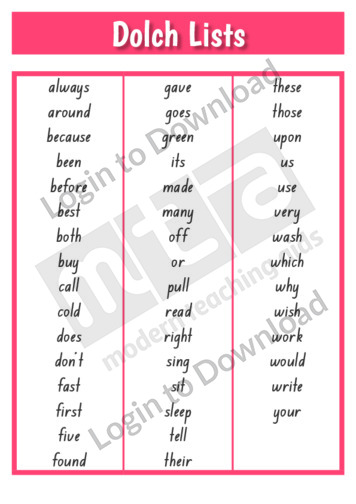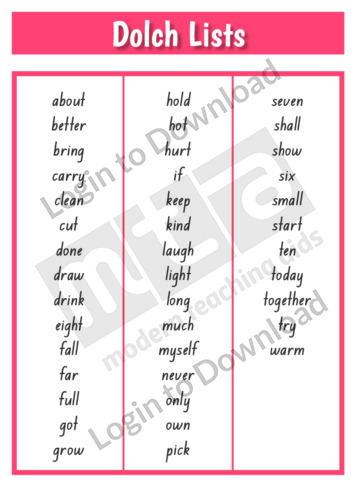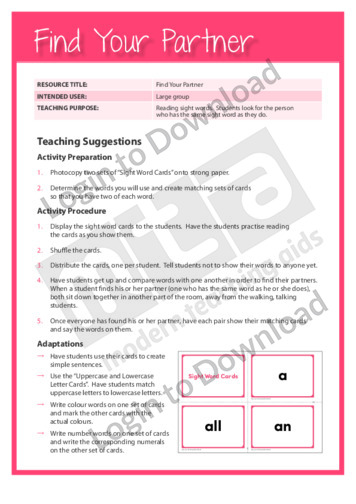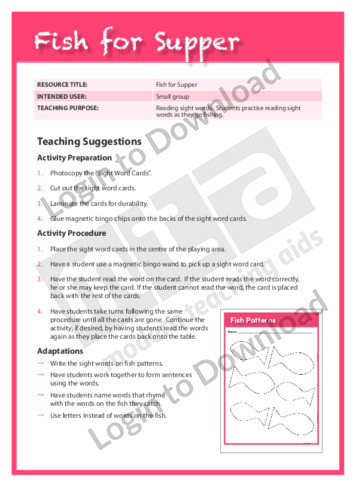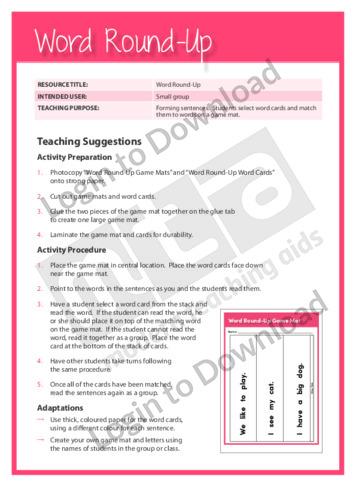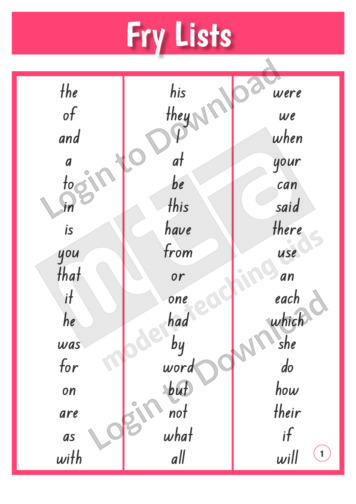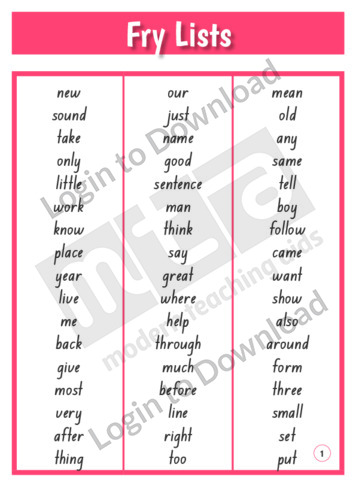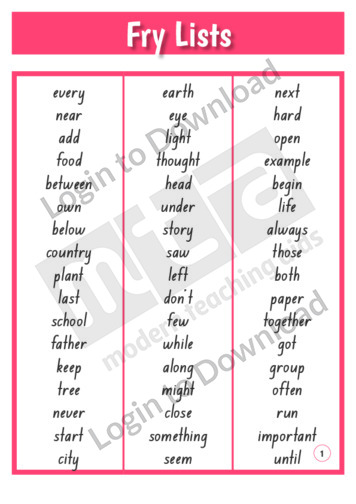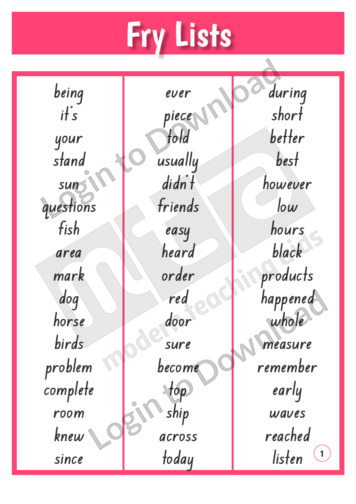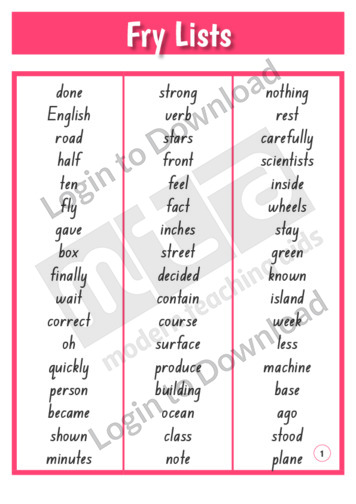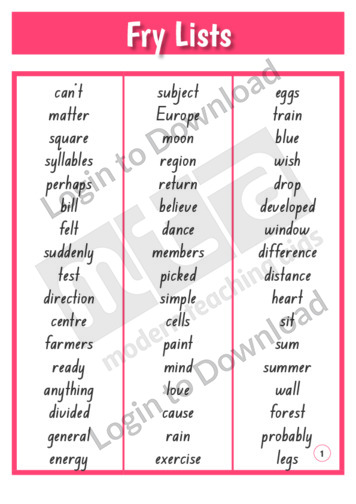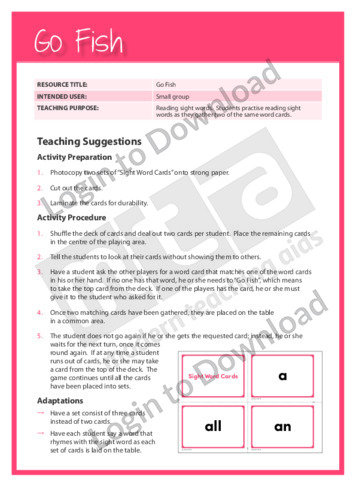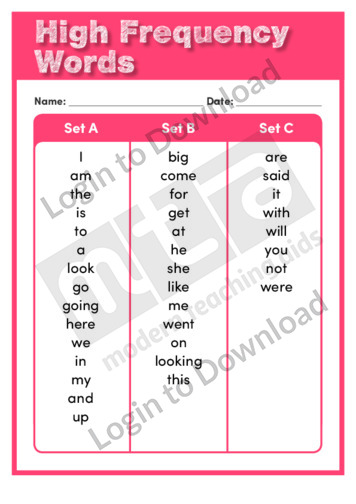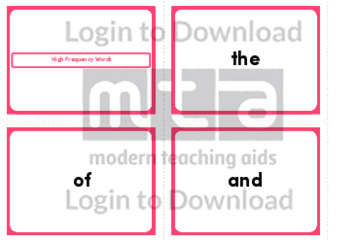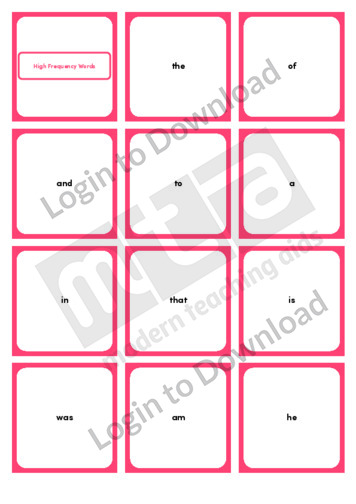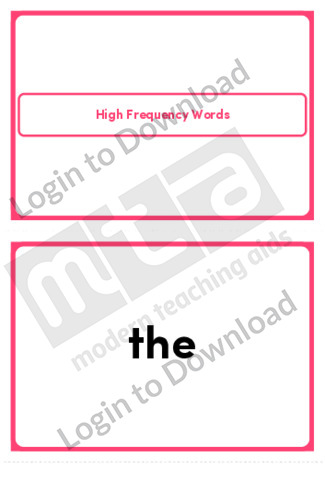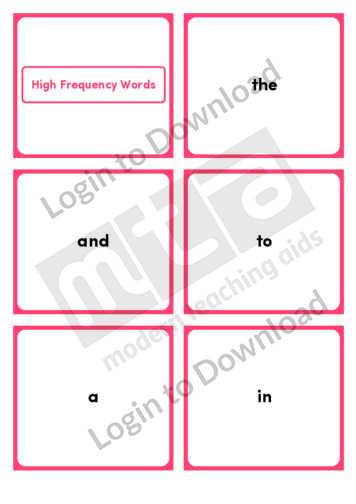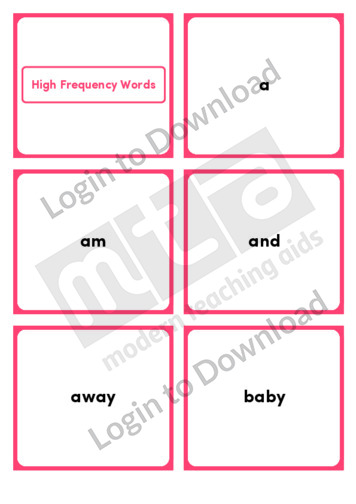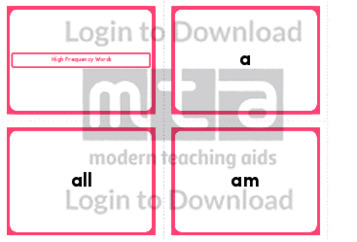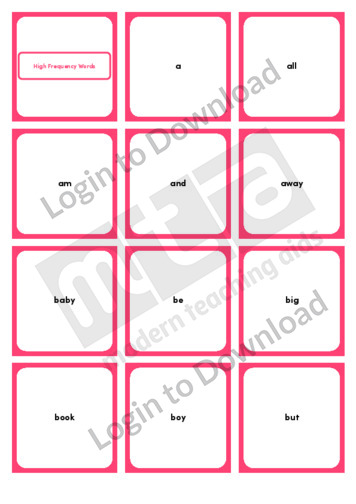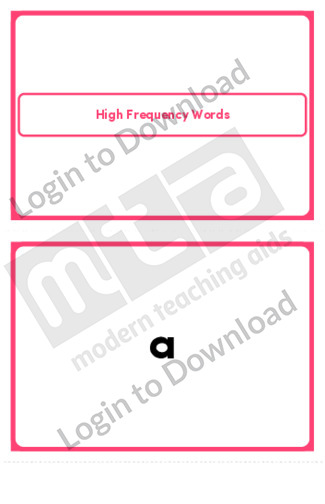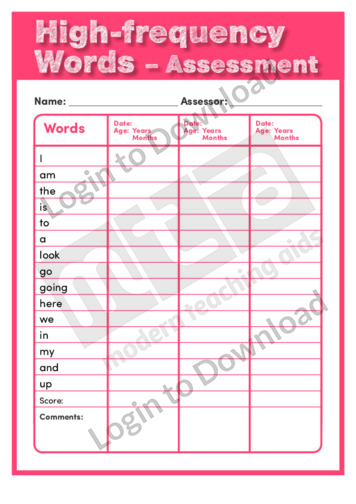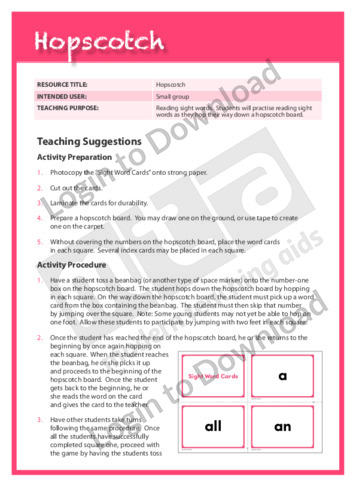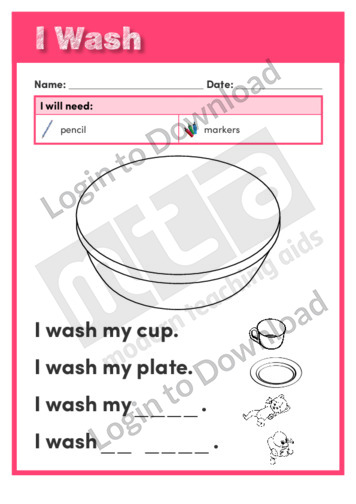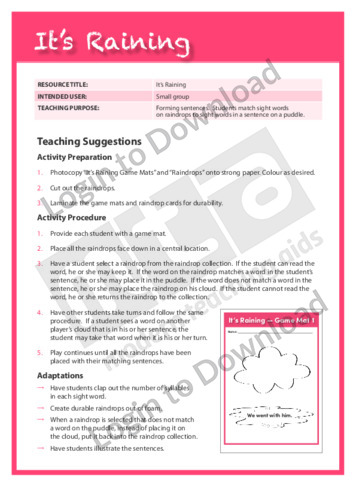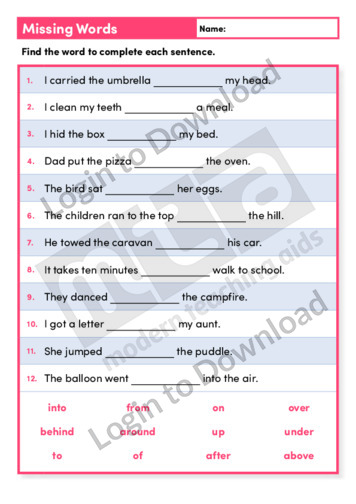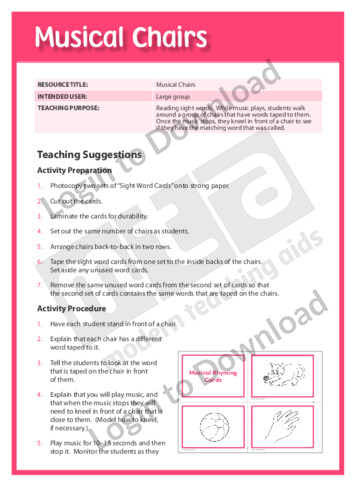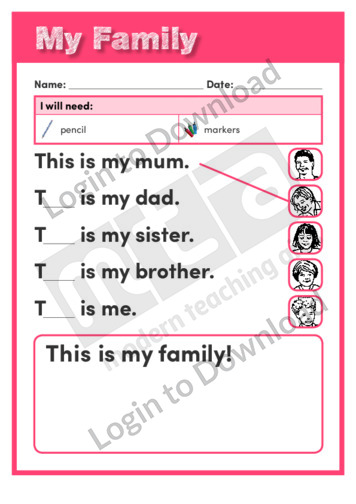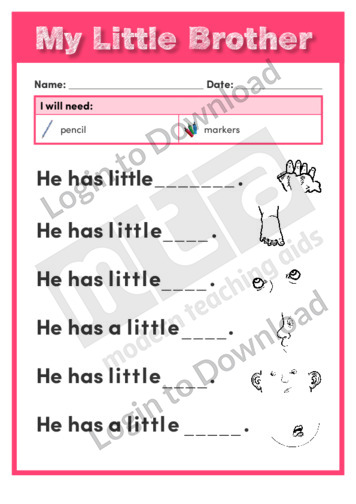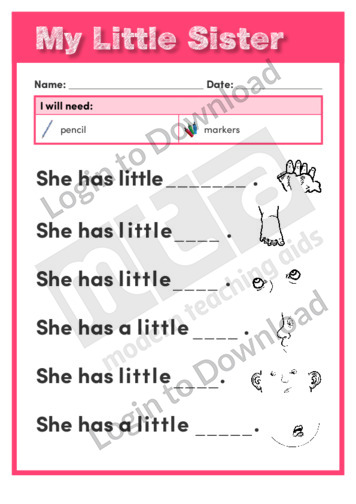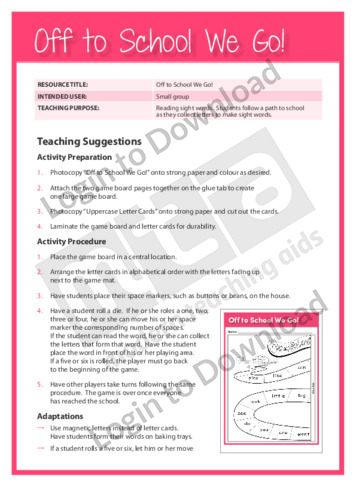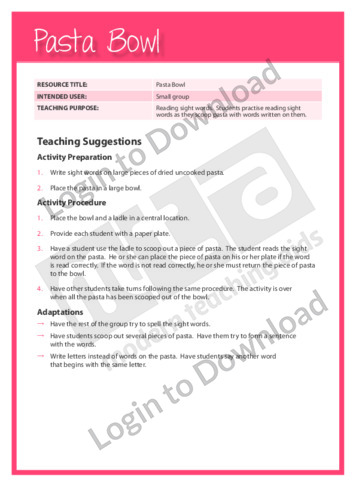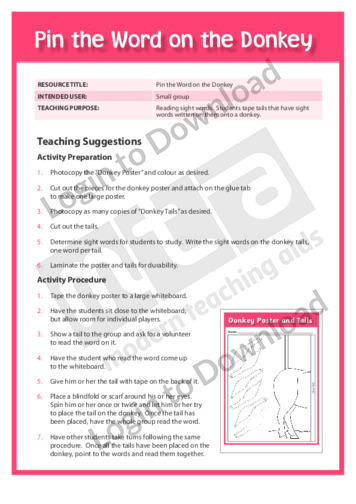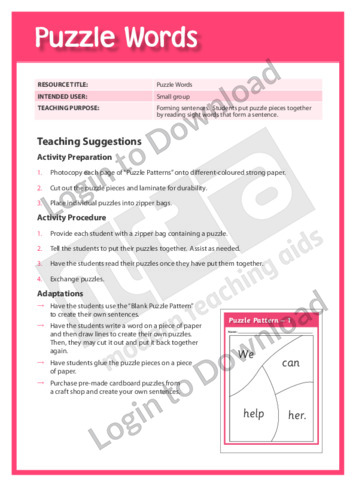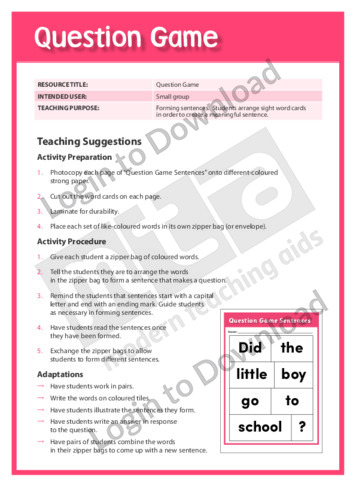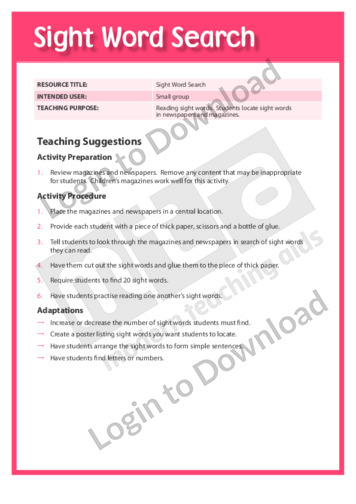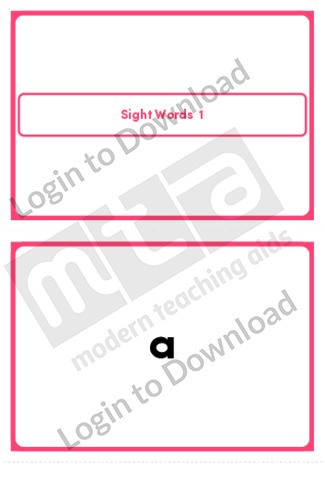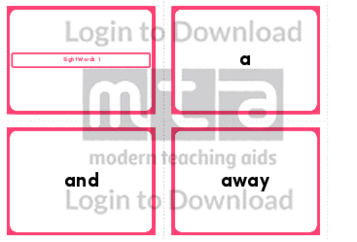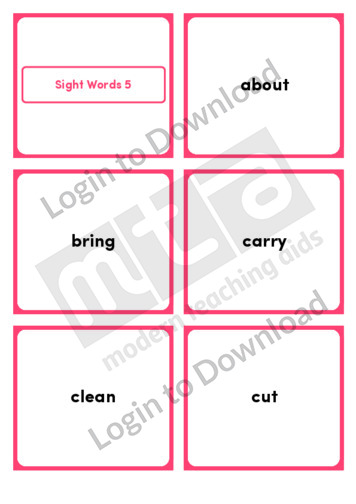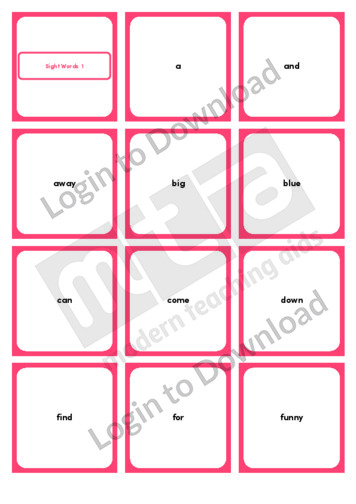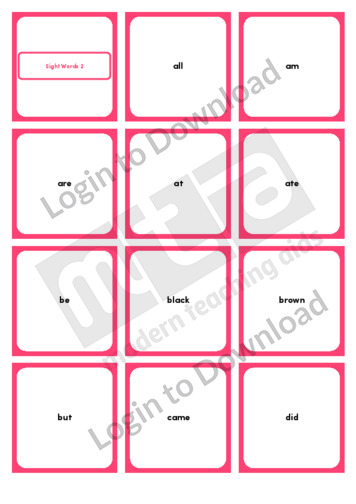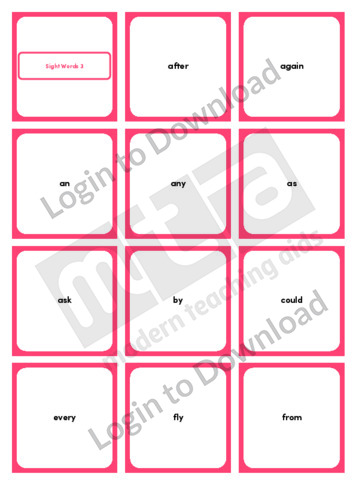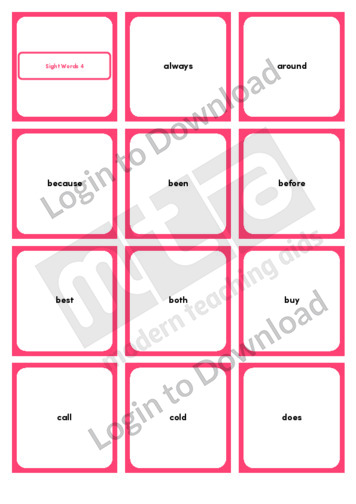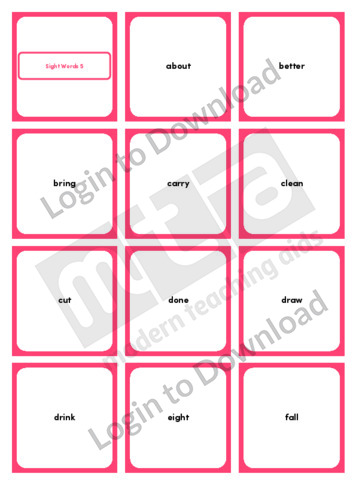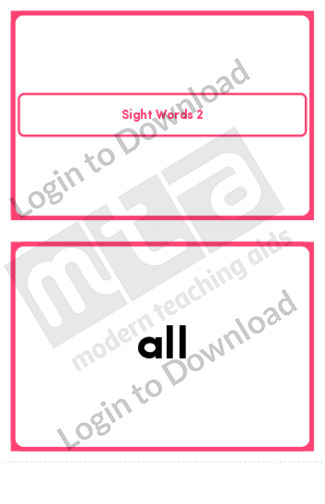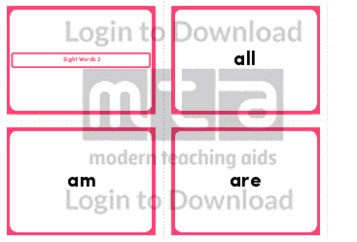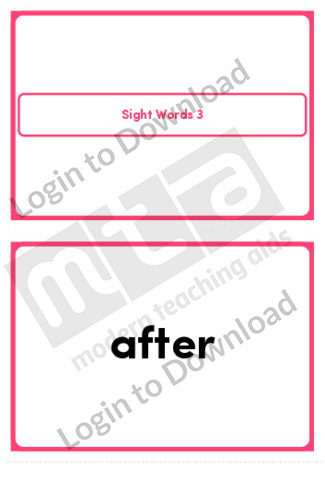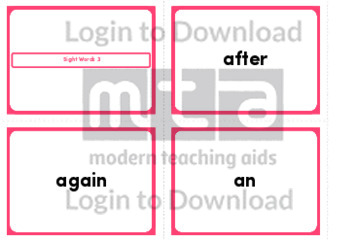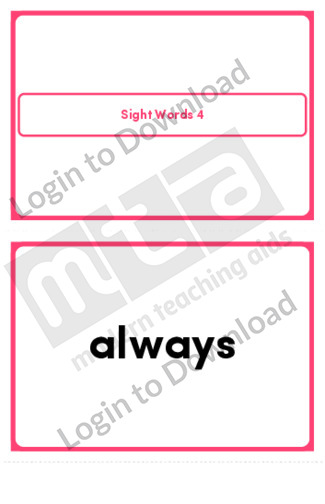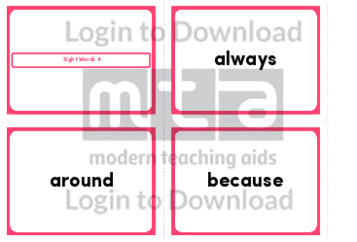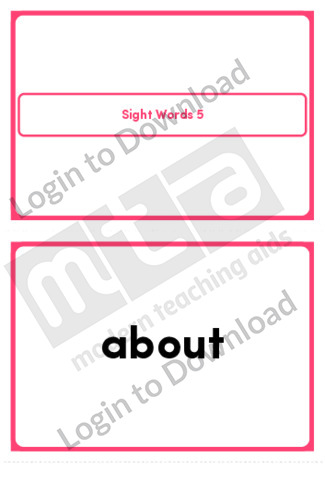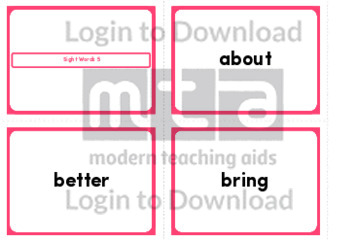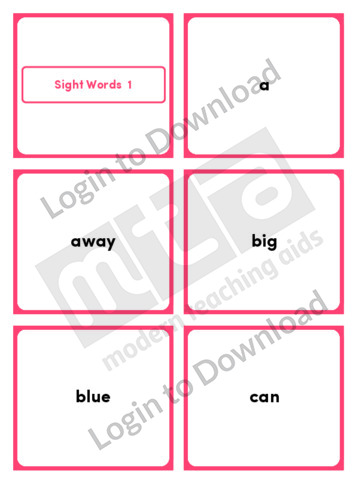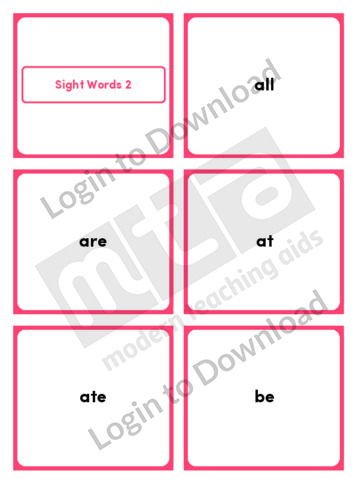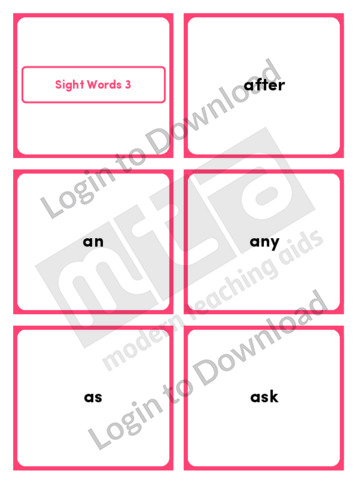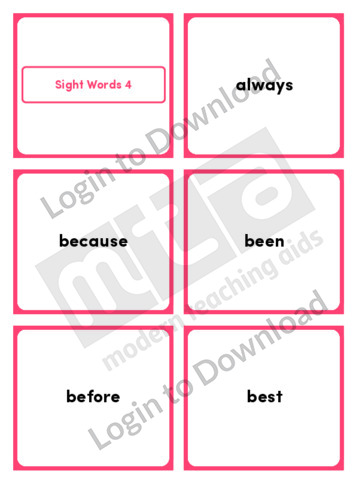This reading activity, ‘Beat the Clock’ supports reading development by encouraging students to form sentences with word cards in a set amount of time. It is aimed at developing students’ awareness of forming sentences. It provides sight word cards.
This reading activity, ‘Bowling for Sight Words’ supports reading development by encouraging students to knock down ‘bowling pins’ and then practise reading the sight words on the pins. It is aimed at developing students’ awareness of sight words. It provides sight word cards and uppercase alphabet cards.
This reading activity, ‘Coin Words’ supports reading development by encouraging students to put letters in the correct order to form sight words. It is aimed at developing students’ awareness of sight words.
This sight words list, ‘Dolch Lists 1’ features words that occur most frequently in early reading encounters. Available in different levels of difficulty, these high-frequency word lists are essential for language development as they include words which often cannot be sounded out or illustrated.
This sight words list, ‘Dolch Lists 2’ features words that occur most frequently in early reading encounters. Available in different levels of difficulty, these high-frequency word lists are essential for language development as they include words which often cannot be sounded out or illustrated.
This sight words list, ‘Dolch Lists 3’ features words that occur most frequently in early reading encounters. Available in different levels of difficulty, these high-frequency word lists are essential for language development as they include words which often cannot be sounded out or illustrated.
This reading activity, ‘Find Your Partner’ supports reading development by encouraging students to look for the person who has the same sight word as they do. It is aimed at developing students’ awareness of sight words. It provides sight word cards, uppercase alphabet cards and lowercase alphabet cards.
This reading activity, ‘Fish for Supper’ supports reading development by encouraging students to practise reading sight words as they go fishing. It is aimed at developing students’ awareness of sight words. It provides fish patterns and sight word cards.
This reading activity, ‘Follow the Rainbow’ supports reading development by encouraging students to practise reading sight words as they follow a rainbow. It is aimed at developing students’ awareness of forming sentences. It provides a rainbow template, sight word cards and uppercase alphabet cards.
This sight words list, ‘Fry Lists 1’ features words that occur most frequently in early reading encounters. Available in different levels of difficulty, these high-frequency word lists are essential for language development as they include words which often cannot be sounded out or illustrated.
This sight words list, ‘Fry Lists 2’ features words that occur most frequently in early reading encounters. Available in different levels of difficulty, these high-frequency word lists are essential for language development as they include words which often cannot be sounded out or illustrated.
This sight words list, ‘Fry Lists 3’ features words that occur most frequently in early reading encounters. Available in different levels of difficulty, these high-frequency word lists are essential for language development as they include words which often cannot be sounded out or illustrated.
This sight words list, ‘Fry Lists 4’ features words that occur most frequently in early reading encounters. Available in different levels of difficulty, these high-frequency word lists are essential for language development as they include words which often cannot be sounded out or illustrated.
This sight words list, ‘Fry Lists 5’ features words that occur most frequently in early reading encounters. Available in different levels of difficulty, these high-frequency word lists are essential for language development as they include words which often cannot be sounded out or illustrated.
This sight words list, ‘Fry Lists 6’ features words that occur most frequently in early reading encounters. Available in different levels of difficulty, these high-frequency word lists are essential for language development as they include words which often cannot be sounded out or illustrated.
This reading activity, ‘Go Fish’ supports reading development by encouraging students to practise reading sight words as they gather two of the same word cards. It is aimed at developing students’ awareness of sight words. It provides sight word cards, uppercase alphabet cards and lowercase alphabet cards.
This Assessment Item, ‘High Frequency Words’ features a list of commonly used words arranged into three sets. It supports reading, writing and vocabulary development.
This set of flashcards, ‘High Frequency Words’ supports vocabulary development through recognition of high frequency words. High frequency words are quite simply words that most frequently occur in early encounters with reading and writing. Many high frequency words are difficult for children to sound out phonetically and must therefore be learnt by sight. Working with …More
This set of flashcards, ‘High Frequency Words’ supports vocabulary development through recognition of high frequency words. High frequency words are quite simply words that most frequently occur in early encounters with reading and writing. Many high frequency words are difficult for children to sound out phonetically and must therefore be learnt by sight. Working with …More
This set of flashcards, ‘High Frequency Words’ supports vocabulary development through recognition of high frequency words. High frequency words are quite simply words that most frequently occur in early encounters with reading and writing. Many high frequency words are difficult for children to sound out phonetically and must therefore be learnt by sight. Working with …More
This set of flashcards, ‘High Frequency Words’ supports vocabulary development through recognition of high frequency words. High frequency words are quite simply words that most frequently occur in early encounters with reading and writing. Many high frequency words are difficult for children to sound out phonetically and must therefore be learnt by sight. Working with …More
This set of flashcards, ‘High Frequency Words’ supports vocabulary development through recognition of high frequency words. High frequency words are quite simply words that most frequently occur in early encounters with reading and writing. Many high frequency words are difficult for children to sound out phonetically and must therefore be learnt by sight. Working with …More
This set of flashcards, ‘High Frequency Words’ supports vocabulary development through recognition of high frequency words. High frequency words are quite simply words that most frequently occur in early encounters with reading and writing. Many high frequency words are difficult for children to sound out phonetically and must therefore be learnt by sight. Working with …More
This set of flashcards, ‘High Frequency Words’ supports vocabulary development through recognition of high frequency words. High frequency words are quite simply words that most frequently occur in early encounters with reading and writing. Many high frequency words are difficult for children to sound out phonetically and must therefore be learnt by sight. Working with …More
This set of flashcards, ‘High Frequency Words’ supports vocabulary development through recognition of high frequency words. High frequency words are quite simply words that most frequently occur in early encounters with reading and writing. Many high frequency words are difficult for children to sound out phonetically and must therefore be learnt by sight. Working with …More
This Assessment Item, ‘High-Frequency Words Assessment’ can be used by teachers to record the words a student knows on sight, on three occasions.
This reading activity, ‘Hopscotch’ supports reading development by encouraging students to practise reading sight words as they hop their way down a hopscotch board. It is aimed at developing students’ awareness of sight words. It provides sight word cards and uppercase alphabet cards.
This worksheet, ‘I Wash’ supports students to complete simple sentences related to washing toys. It supports an understanding of reading and writing.
This reading activity, ‘It’s Raining’ supports reading development by encouraging students to match sight words on raindrops to sight words in a sentence on a puddle. It is aimed at developing students’ awareness of forming sentences. It provides game mats and raindrop word cards.
This reading activity, ‘Missing Words’ provides opportunities for practice with completing simple sentences.
This reading activity, ‘Musical Chairs’ supports reading development by encouraging students to practise reading sight words as they play musical chairs. It is aimed at developing students’ awareness of sight words. It provides sight word cards, musical rhyming cards and uppercase alphabet cards.
This worksheet, ‘My Family’ supports students to identify and match words with pictures of family members. It supports an understanding of reading and writing.
This worksheet, ‘My Little Brother’ supports students to identify and match words with images of facial features. It supports an understanding of reading and writing.
This worksheet, ‘My Little Sister’ supports students to identify and match words with images of facial features. It supports an understanding of reading and writing.
This reading activity, ‘Off to School We Go!’ supports reading development by encouraging students to follow a path to school on a game board as they collect letters to make sight words. It is aimed at developing students’ awareness of sight words. It provides uppercase alphabet cards, letter cards and a game board.
This reading activity, ‘Pasta Bowl’ supports reading development by encouraging students to practise reading sight words as they scoop pasta with words written on them. It is aimed at developing students’ awareness of sight words.
This reading activity, ‘Pin the Word on the Donkey’ supports reading development by encouraging students to tape tails that have sight words written on them onto a donkey. It is aimed at developing students’ awareness of sight words. It provides a donkey poster and tails.
This reading activity, ‘Puzzle Words’ supports reading development by encouraging students to put puzzle pieces together by reading sight words that form a sentence. It is aimed at developing students’ awareness of forming sentences. It provides puzzle pattern templates and a blank puzzle pattern template.
This reading activity, ‘Question Game’ supports reading development by encouraging students to arrange sight words to form meaningful sentences. It is aimed at developing students’ awareness of forming sentences. It provides question game sentence sheets.
This reading activity, ‘Sight Word Search’ supports reading development by encouraging students to locate sight words in newspapers and magazines. It is aimed at developing students’ awareness of sight words.
This set of flashcards, ‘Sight Words 1′ supports vocabulary development through recognition of sight words. Working with this set of 200+ Lesson Zone flashcards helps to develop students’ confidence in reading and vocabulary through repetition and identification.
This set of flashcards, ‘Sight Words 1′ supports vocabulary development through recognition of sight words. Working with this set of 200+ Lesson Zone flashcards helps to develop students’ confidence in reading and vocabulary through repetition and identification.
This set of flashcards, ‘Sight Words 5′ supports vocabulary development through recognition of sight words. Working with this set of 200+ Lesson Zone flashcards helps to develop students’ confidence in reading and vocabulary through repetition and identification.
This set of flashcards, ‘Sight Words 1′ supports vocabulary development through recognition of sight words. Working with this set of 200+ Lesson Zone flashcards helps to develop students’ confidence in reading and vocabulary through repetition and identification.
This set of flashcards, ‘Sight Words 2′ supports vocabulary development through recognition of sight words. Working with this set of 200+ Lesson Zone flashcards helps to develop students’ confidence in reading and vocabulary through repetition and identification.
This set of flashcards, ‘Sight Words 3′ supports vocabulary development through recognition of sight words. Working with this set of 200+ Lesson Zone flashcards helps to develop students’ confidence in reading and vocabulary through repetition and identification.
This set of flashcards, ‘Sight Words 4′ supports vocabulary development through recognition of sight words. Working with this set of 200+ Lesson Zone flashcards helps to develop students’ confidence in reading and vocabulary through repetition and identification.
This set of flashcards, ‘Sight Words 5′ supports vocabulary development through recognition of sight words. Working with this set of 200+ Lesson Zone flashcards helps to develop students’ confidence in reading and vocabulary through repetition and identification.
This set of flashcards, ‘Sight Words 2′ supports vocabulary development through recognition of sight words. Working with this set of 200+ Lesson Zone flashcards helps to develop students’ confidence in reading and vocabulary through repetition and identification.
This set of flashcards, ‘Sight Words 2′ supports vocabulary development through recognition of sight words. Working with this set of 200+ Lesson Zone flashcards helps to develop students’ confidence in reading and vocabulary through repetition and identification.
This set of flashcards, ‘Sight Words 3′ supports vocabulary development through recognition of sight words. Working with this set of 200+ Lesson Zone flashcards helps to develop students’ confidence in reading and vocabulary through repetition and identification.
This set of flashcards, ‘Sight Words 3′ supports vocabulary development through recognition of sight words. Working with this set of 200+ Lesson Zone flashcards helps to develop students’ confidence in reading and vocabulary through repetition and identification.
This set of flashcards, ‘Sight Words 4′ supports vocabulary development through recognition of sight words. Working with this set of 200+ Lesson Zone flashcards helps to develop students’ confidence in reading and vocabulary through repetition and identification.
This set of flashcards, ‘Sight Words 4′ supports vocabulary development through recognition of sight words. Working with this set of 200+ Lesson Zone flashcards helps to develop students’ confidence in reading and vocabulary through repetition and identification.
This set of flashcards, ‘Sight Words 5′ supports vocabulary development through recognition of sight words. Working with this set of 200+ Lesson Zone flashcards helps to develop students’ confidence in reading and vocabulary through repetition and identification.
This set of flashcards, ‘Sight Words 5′ supports vocabulary development through recognition of sight words. Working with this set of 200+ Lesson Zone flashcards helps to develop students’ confidence in reading and vocabulary through repetition and identification.
This set of flashcards, ‘Sight Words 1′ supports vocabulary development through recognition of sight words. Working with this set of 200+ Lesson Zone flashcards helps to develop students’ confidence in reading and vocabulary through repetition and identification.
This set of flashcards, ‘Sight Words 2′ supports vocabulary development through recognition of sight words. Working with this set of 200+ Lesson Zone flashcards helps to develop students’ confidence in reading and vocabulary through repetition and identification.
This set of flashcards, ‘Sight Words 3′ supports vocabulary development through recognition of sight words. Working with this set of 200+ Lesson Zone flashcards helps to develop students’ confidence in reading and vocabulary through repetition and identification.
This set of flashcards, ‘Sight Words 4′ supports vocabulary development through recognition of sight words. Working with this set of 200+ Lesson Zone flashcards helps to develop students’ confidence in reading and vocabulary through repetition and identification.
It�s that easy!

